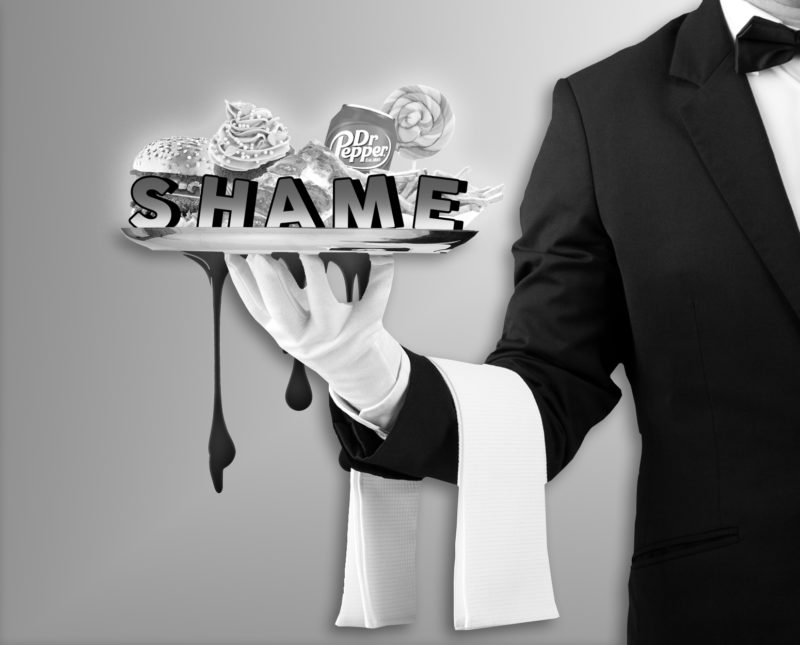No one should actually care if you order the seven cheese pasta sandwich.
We live in a world where the decision of what to eat becomes much more than a simple question of how one is going to get the nutrients they need to survive. This is great because there are many options to explore, whether it be through preparing the food yourself or having someone else prepare it for you. However, the pressure to conform to the societal image of physical attractiveness, standardized as a range from thin to fit, is pervasive in the world of food and how people choose to consume it. This seems like enough of a nuisance, but you may also be food-shamed.
What is food-shaming you may ask? Even if you have not consciously acknowledged being food-shamed (or food-shaming), you have most likely encountered (or committed) the act. Food-shaming is the act of judging someone by commenting negatively, whether explicitly or implicitly, on their food choices. Whether it be intentional or not, it is often detrimental to the receiver.
Asking someone “Should you really be eating that?” when you are not a dietitian looking out for the other person’s best interests can be harmful to a person’s health and self-image. These kinds of comments may shame the person into questioning their choices, often to the point of reflecting on their body image. They may also be seen as just unwanted and judgmental, and the receiver may simply ignore the comment. Although these situations may seem trivial, food-shaming itself permeates through society on different levels.
First, food-shaming is a culturally ingrained phenomenon. Assuming you have ever been in a supermarket, you have probably noticed the variety of products trying to convey that they are “healthier,” or have fewer carbs and fewer fats than their competitors’ options. This is an acceptable, commonly used practice. However, some companies have approached marketing their products with a unsettling language: branding their item as “skinny.” There is “skinny” popcorn, scones, ice cream and even bread.
Companies are jumping on the food-shaming bandwagon, focusing in on a term that is highly body-centric. Although most people don’t put too much faith in a product marketed to make them “skinny,” the buzzword does create a chain reaction. These companies are making money off of people’s insecurities. They are attempting to food-shame consumers by saying, “This product will make you skinny so you should buy it.”
This language creates a society concerned with nutrition facts for it’s effect on their own weight, not their health. Food-shaming can be under the guise of promoting a healthy lifestyle when it comes to marketing or even advice from a friend. Clothing, makeup and various other brands take advantage of insecurities, and it’s a shame that something so necessary as food is thrown into the body-shaming equation.
In many cases, the type of food-shaming mentioned above is hard to avoid or confront. The last type of food-shaming, food-shaming as bullying, may be a little easier to spot. This is the most basic form of the act, literally shaming someone for the food they decide to eat or not eat. Looking back at the standard, the “Should you really be eating that?” question, it is almost never the inquisitor’s place to derive an answer. One could easily live a healthy lifestyle while still giving in to certain cravings. Passing explicit judgment on someone or even pointing out the one person who orders a pasta dish instead of a salad with the dressing on the side is spreading body-centric culture.
If you are being food-shamed, it is not petty or pointless to call for it to stop. If you are a food-shamer, just know that you are contributing to a cycle of negativity that is propagated and has been deemed the norm. As James Beard once said, “Food is our common ground, a universal experience”. And by extension, it should be a universally positive experience for us all.







